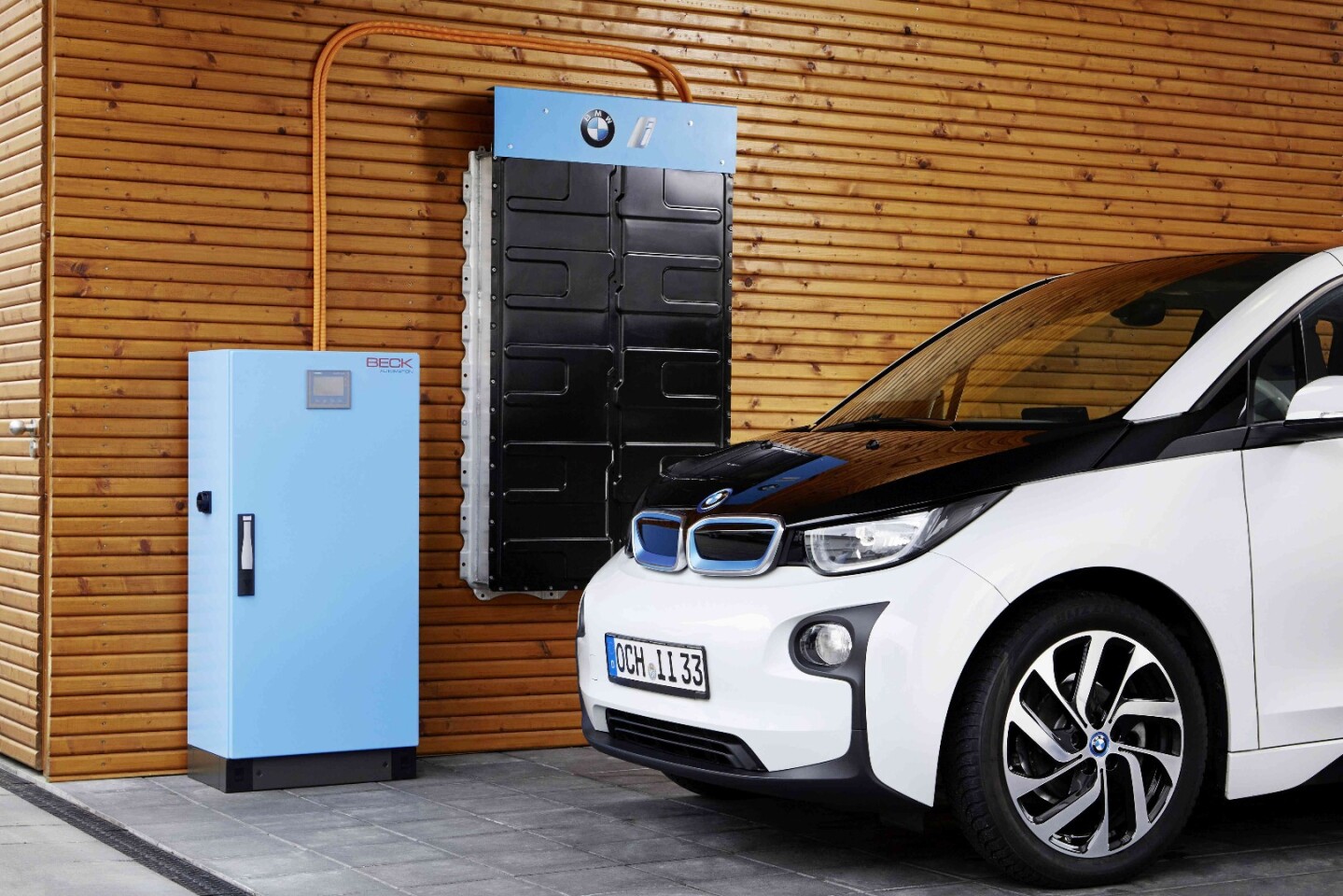Electric vehicle manufacturers are eager to give their cars another selling point by using them to put electricity back into the home and grid, not just pull it out. Tesla has the Powerwall and Nissan Leafs have been used in car-to-grid programs in the US and UK. BMW is continuing its own efforts by developing a system that could repurpose old i3 batteries for home and business energy storage.
Revealed at this week's Electric Vehicle Symposium & Exhibition 29 in Montreal, BMW's electricity storage and management concept relies on the i3's battery to serve as a backup battery for home or commercial energy. BMW says it's the first automaker to utilize a complete high-voltage EV battery in this way (Tesla's Powerwall uses a battery much smaller than the ones in its cars). The home system, which also includes a voltage converter and power electronics, is designed to be integrated seamlessly with solar panels and charging stations.
In practice, the system looks to work like other solar systems with battery backup. Solar panels charge the battery, and real-time supply/demand energy readings are used to determine when to charge/discharge the battery, minimizing waste and reducing energy costs. The battery would also serve as a backup energy source for use in power outages, and BMW reckons that the original 22-kWh pack or all-new 33-kWh pack could run a variety of appliances and entertainment devices for up to 24 hours.

"The remarkable advantage for BMW customers in using BMW i3 batteries as a plug and play storage application is the ability to tap into an alternative resource for residential and commercial backup power, thus using renewable energy much more efficiently and enabling additional revenues from the energy market," explains Cliff Fietzek, manager of Connected eMobility at BMW of North America.
There's nothing groundbreaking about the system's design, but what is interesting is that BMW sees it as a way of reusing old i3 batteries that still have some life left in their cells. BMW claims that the i3's lithium-ion batteries will retain most of their original capacity after use in the vehicle and believes they'd offer many years of in-home service. The system could also use a brand-new battery pack, if the home or business owner preferred.
BMW doesn't mention any immediate future for the system, but it will be trialling a related energy system within the two-part ChargeForward study being conducted with California's Pacific Gas and Electric Company. Second life MINI E batteries will be used to create a stationary solar energy storage system at BMW's technology office in Mountain View, California. The second part of the program will task participating San Francisco Bay area i3 drivers with allowing BMW to delay or interrupt vehicle charging by up to an hour in response to peak grid loads. The purpose of the study is to demonstrate how intelligent EV charging management can help optimize power grid efficiency and reduce the cost of EV ownership.
Source: BMW





